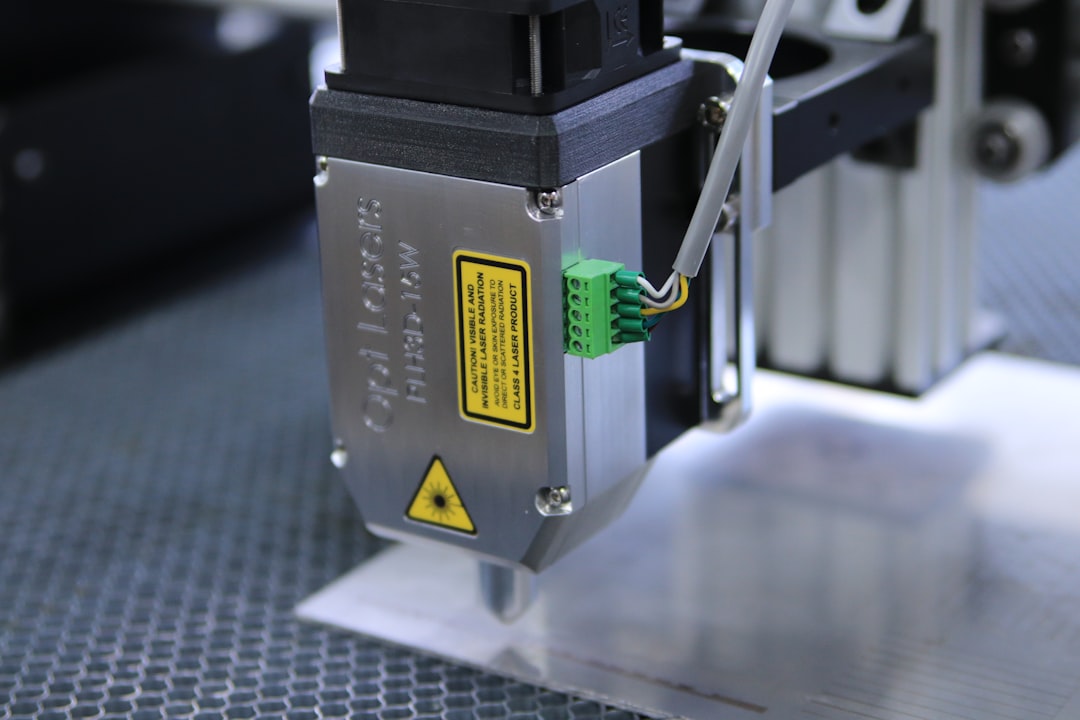Laser hair removal is a popular cosmetic procedure that uses a concentrated beam of light (laser) to remove unwanted hair. The laser emits a light that is absorbed by the pigment (melanin) in the hair. This light energy is converted to heat, which damages the hair follicles, inhibiting future hair growth. The procedure is commonly used to remove hair from the face, legs, arms, underarms, bikini line, and other areas.
Laser hair removal is a non-invasive procedure that offers a long-term solution to unwanted hair. It is important to note that laser hair removal is not a one-time treatment and requires multiple sessions to achieve the desired results. The number of sessions needed varies depending on the individual’s skin type, hair color, and the area being treated. It is essential to consult with a qualified and experienced professional to determine the best treatment plan for your specific needs.
Key Takeaways
- Laser hair removal uses concentrated light to target and destroy hair follicles, resulting in long-term hair reduction.
- The effectiveness of laser hair removal varies depending on factors such as hair color, skin type, and the area being treated.
- Factors affecting the permanence of laser hair removal include hormonal changes, genetics, and the skill of the technician performing the treatment.
- Maintenance and follow-up treatments may be necessary to achieve and maintain desired results from laser hair removal.
- Risks and side effects of laser hair removal can include skin irritation, pigment changes, and in rare cases, scarring. Alternatives to laser hair removal include waxing, shaving, and electrolysis.
How Laser Hair Removal Works
During a laser hair removal session, the technician will use a handheld device to deliver the laser pulses to the targeted area. The pigment in the hair follicles absorbs the light energy, which then converts to heat. This heat damages the follicle and inhibits future hair growth. The surrounding skin remains unharmed as the laser is designed to target only the hair follicles.
The effectiveness of laser hair removal is dependent on the contrast between the color of the hair and the color of the skin. The ideal candidate for laser hair removal has dark hair and light skin, as the contrast allows the laser to effectively target the hair follicles without affecting the surrounding skin. However, advancements in technology have made it possible for individuals with darker skin tones to undergo laser hair removal with specialized lasers that can safely and effectively target the hair follicles.
The Effectiveness of Laser Hair Removal
Laser hair removal is known for its effectiveness in reducing and preventing hair growth in treated areas. Many individuals experience a significant reduction in hair growth after completing a series of laser hair removal sessions. While some may achieve permanent hair reduction, it is important to note that results can vary from person to person.
The effectiveness of laser hair removal is influenced by various factors, including the individual’s skin type, hair color, and hormonal imbalances. Additionally, the skill and experience of the technician performing the procedure can also impact the results. It is essential to undergo laser hair removal treatments at a reputable facility with qualified professionals to ensure the best possible outcome.
Factors Affecting the Permanence of Laser Hair Removal
| Factors | Impact |
|---|---|
| Skin color | Dark skin may require special laser types |
| Hair color | Darker hair responds better to laser treatment |
| Hormones | Hormonal changes can affect hair growth |
| Treatment area | Different areas may have different results |
| Number of sessions | Multiple sessions may be needed for permanent results |
Several factors can affect the permanence of laser hair removal. One of the most significant factors is the individual’s hormonal balance. Hormonal imbalances, such as those caused by conditions like polycystic ovary syndrome (PCOS), can lead to ongoing hair growth even after completing a series of laser hair removal sessions. In such cases, maintenance treatments may be necessary to manage new hair growth.
Another factor that can impact the permanence of laser hair removal is the color and thickness of the hair being treated. Dark, coarse hairs respond best to laser treatment, while lighter or finer hairs may be less responsive. Additionally, multiple sessions are typically required to target hairs in different stages of growth, as not all hairs are actively growing at the same time.
Maintenance and Follow-Up Treatments
While some individuals may achieve permanent hair reduction after completing a series of laser hair removal sessions, others may require maintenance treatments to manage new hair growth. Maintenance treatments are typically scheduled as needed, based on the individual’s response to the initial series of treatments.
It is important to follow the recommended treatment schedule provided by your laser hair removal technician to achieve optimal results. Skipping or delaying maintenance treatments can impact the effectiveness of the procedure and may lead to increased hair growth in treated areas.
Risks and Side Effects of Laser Hair Removal

Like any cosmetic procedure, laser hair removal carries potential risks and side effects. Common side effects include temporary redness, swelling, and discomfort in the treated area. These side effects typically subside within a few hours to a few days after treatment.
More serious side effects, such as burns, blisters, or changes in skin pigmentation, are rare but can occur if the procedure is not performed correctly. It is crucial to undergo laser hair removal treatments at a reputable facility with experienced professionals to minimize the risk of adverse effects.
Alternatives to Laser Hair Removal
While laser hair removal is a popular choice for long-term hair reduction, there are alternative methods available for managing unwanted hair. These alternatives include waxing, shaving, depilatory creams, and electrolysis.
Waxing involves applying a layer of wax to the skin and then removing it quickly to pull out unwanted hairs from the root. Shaving involves using a razor or electric shaver to cut the hair at skin level. Depilatory creams contain chemicals that break down the protein structure of the hair, allowing it to be wiped away from the skin’s surface. Electrolysis is a method that uses an electric current to destroy individual hair follicles.
Each alternative method has its own set of pros and cons, and individuals should consider their specific needs and preferences when choosing a method for managing unwanted hair. It is important to consult with a qualified professional to determine the best approach for your individual needs and desired outcome.
If you’re wondering about the permanence of laser hair removal, you might find the article “How Long Does Laser Hair Removal Take?” on In Laser Hair Removal’s website to be quite informative. This article discusses the duration of laser hair removal treatments and provides insights into the process. You can learn more about it here.
FAQs
What is laser hair removal?
Laser hair removal is a cosmetic procedure that uses a concentrated beam of light (laser) to remove unwanted hair. The laser targets the pigment in the hair follicles, damaging them and inhibiting future hair growth.
Is laser hair removal permanent?
Laser hair removal can lead to long-term hair reduction, but it is not always permanent. Some people may experience regrowth of hair over time, although it is often finer and lighter in color.
How many sessions are typically needed for permanent hair removal?
The number of sessions needed for permanent hair removal varies depending on factors such as the individual’s hair color, skin type, and the area being treated. On average, most people require 6-8 sessions spaced several weeks apart to achieve optimal results.
Are there any risks or side effects associated with laser hair removal?
While laser hair removal is generally considered safe, some potential risks and side effects include skin irritation, redness, swelling, and changes in skin pigmentation. It is important to consult with a qualified and experienced practitioner to minimize these risks.
Who is a good candidate for laser hair removal?
Laser hair removal is most effective for individuals with light skin and dark hair, as the laser targets the pigment in the hair follicles. However, advancements in technology have made it possible for people with a wider range of skin and hair colors to undergo laser hair removal. It is best to consult with a professional to determine if you are a good candidate for the procedure.





